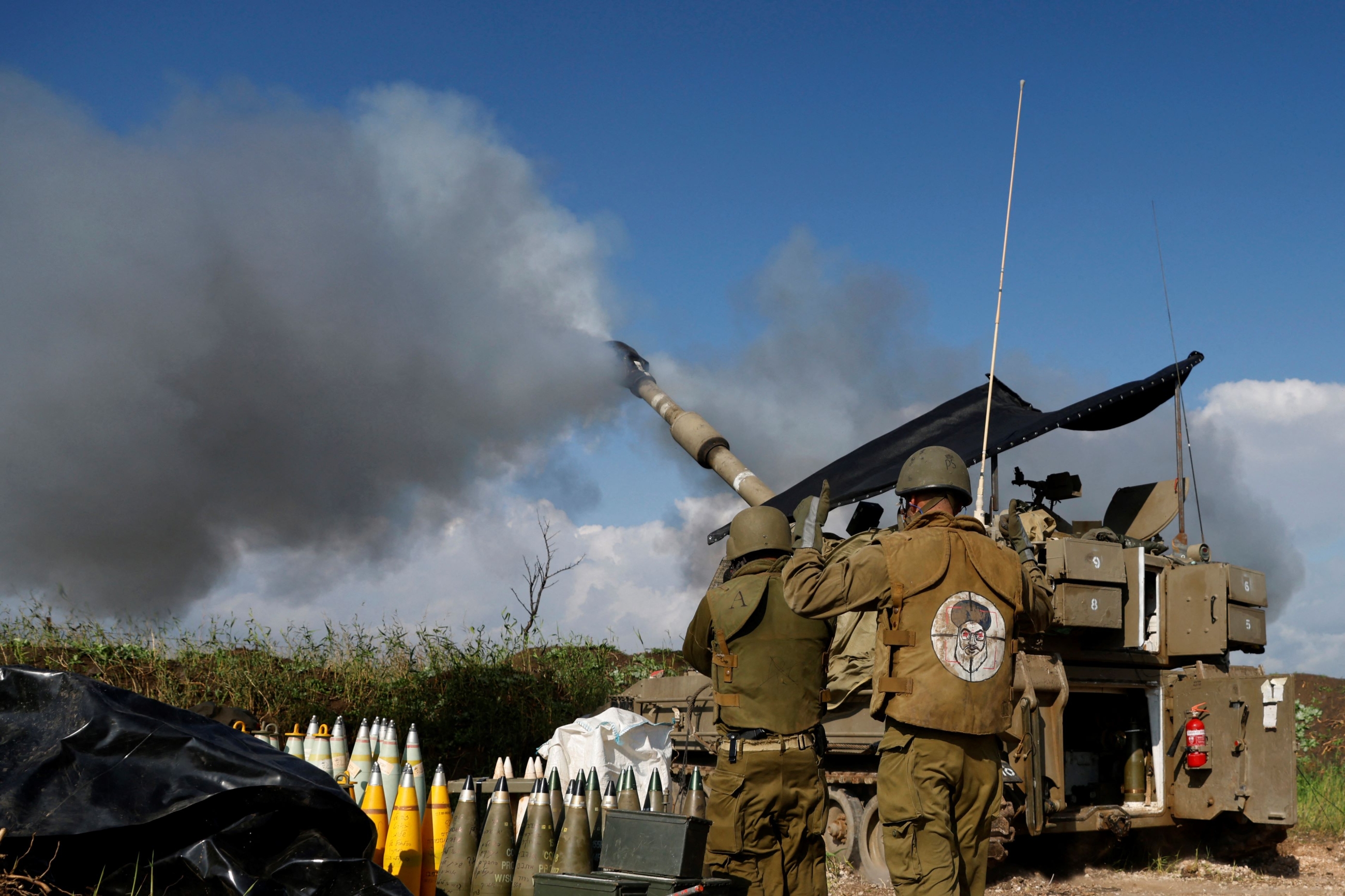War on Gaza: Hezbollah drones strike in northern Israel follow Lebanon assassinations

Hezbollah launched a series of drone attacks from Lebanon into northern Israel on Tuesday in retaliation for the killings of several fighters.
The drones hit an Israeli army base, leading to the destruction of a "large number of Israeli vehicles (and) tanks," according to the Hezbollah leadership.
It came hours after three members of the group were killed in a targeted strike on their vehicle in the town of Ghandouriyeh in the south of Lebanon.
There has been an exchange of fire and attacks between Israel and Hezbollah in recent days, despite the group's apparent unwillingness to be drawn into a wider conflict.
An Israeli air strike killed senior Hezbollah commander Wissam al-Tawil on Monday, while Israeli Defence Minister Yoav Gallant has threatened to "copy-paste" the destruction of Gaza on to Lebanon if Hezbollah attacks continue.
New MEE newsletter: Jerusalem Dispatch
Sign up to get the latest insights and analysis on Israel-Palestine, alongside Turkey Unpacked and other MEE newsletters
Later on Tuesday, a number of media outlets reported that air strikes hit Tawil's funeral, with Al Jazeera English saying one person had died.
Lebanon's Prime Minister Najib Mikati reiterated his country's "readiness" for talks about long-term stability on its southern border in a meeting with UN Undersecretary-General for Peace Operations Jean-Pierre Lacroix in Beirut on Tuesday.
“We seek permanent stability and call for a lasting peaceful solution – but in return we receive warnings through international envoys about a war on Lebanon,” Mikati said in a statement.
“The position I repeat to these delegates is: Do you support the idea of destruction? Is what is happening in Gaza acceptable?”
The Israeli military also on Monday announced the death of five additional soldiers in Gaza, bringing the death toll in a single day to nine.
Nearly 590 members of Israel's security forces have been killed by Palestinians since 7 October, at the time of publication.
West Bank operations
Israel's attack on Gaza, which began on 7 October following a Hamas operation that killed 1140 people, has so far left at least 23,210 Palestinians dead.
The World Health Organisation (WHO) said on Tuesday that it feared hospitals in the southern and central Gaza Strip would collapse the way they did in the north.
"What we're seeing is really worrying around a lot of the hospitals and an intensification of hostilities, very close to the European Gaza hospital," Sean Casey, WHO emergency medical teams coordinator in Gaza, told a Geneva press briefing by video link.
"We are seeing the health system collapse at a very rapid pace," he added, saying that an estimated 600 patients had fled one facility.
He also said that the referrals of patients out of Gaza are "not working" and expressed "huge concern" about 66 health workers detained by Israeli forces.
The conflict has spilled over from Gaza as well, with the occupied West Bank seeing increasing Israeli military operations and attacks by settlers.
Israeli forces on Tuesday shot dead a Palestinian in the West Bank, near the Ein Sinya checkpoint close to Ramallah, according to the Palestinian news agency Wafa.
The Palestinian was described as being a “youth”.
The Palestinian Prisoners' Society also announced on Tuesday that Israel had detained at least 5,755 Palestinians since the start of the war, including around 190 women and 335 children.
Journalists are also among those detained.
The most recent arrests took place in the West Bank, where at least 25 Palestinians were detained.
Blinken in Israel
US Secretary of State Anthony Blinken met with Israeli leaders on Tuesday in an attempt to defuse regional tensions and to try and limit the spread of the conflict beyond Israel-Palestine.
Blinken’s visit, his fourth since 7 October, is part of a Middle East tour intended to prevent a broader regional war and to discuss the "way forward" for Gaza.
Ahead of the visit the secretary of state said he would press the Israeli government "on the absolute imperative to do more to protect civilians and to do more to make sure that humanitarian assistance is getting into the hands of those who need it".
However in Israel, Blinken reiterated his support for Israel's military campaign and "reaffirmed [US] support for Israel’s right to prevent another October 7 from occurring".
Blinken was set to push for a consensus on the future governance of Gaza, based on his earlier meetings with Saudi Arabia, the United Arab Emirates, Qatar, Jordan, Greece and Turkey.
However, Israeli calls for the forced displacement of Palestinians from Gaza remain a key point of contention between Israeli and Arab leaders.
Ahead of Blinken’s visit, Gallant outlined plans for postwar governance in Gaza.
While the plans did not call for the forced displacement of Palestinians from the enclave, they excluded any role for the Palestinian Authority (PA), contradicting US calls for handing it control over the Gaza Strip.
Middle East Eye delivers independent and unrivalled coverage and analysis of the Middle East, North Africa and beyond. To learn more about republishing this content and the associated fees, please fill out this form. More about MEE can be found here.







